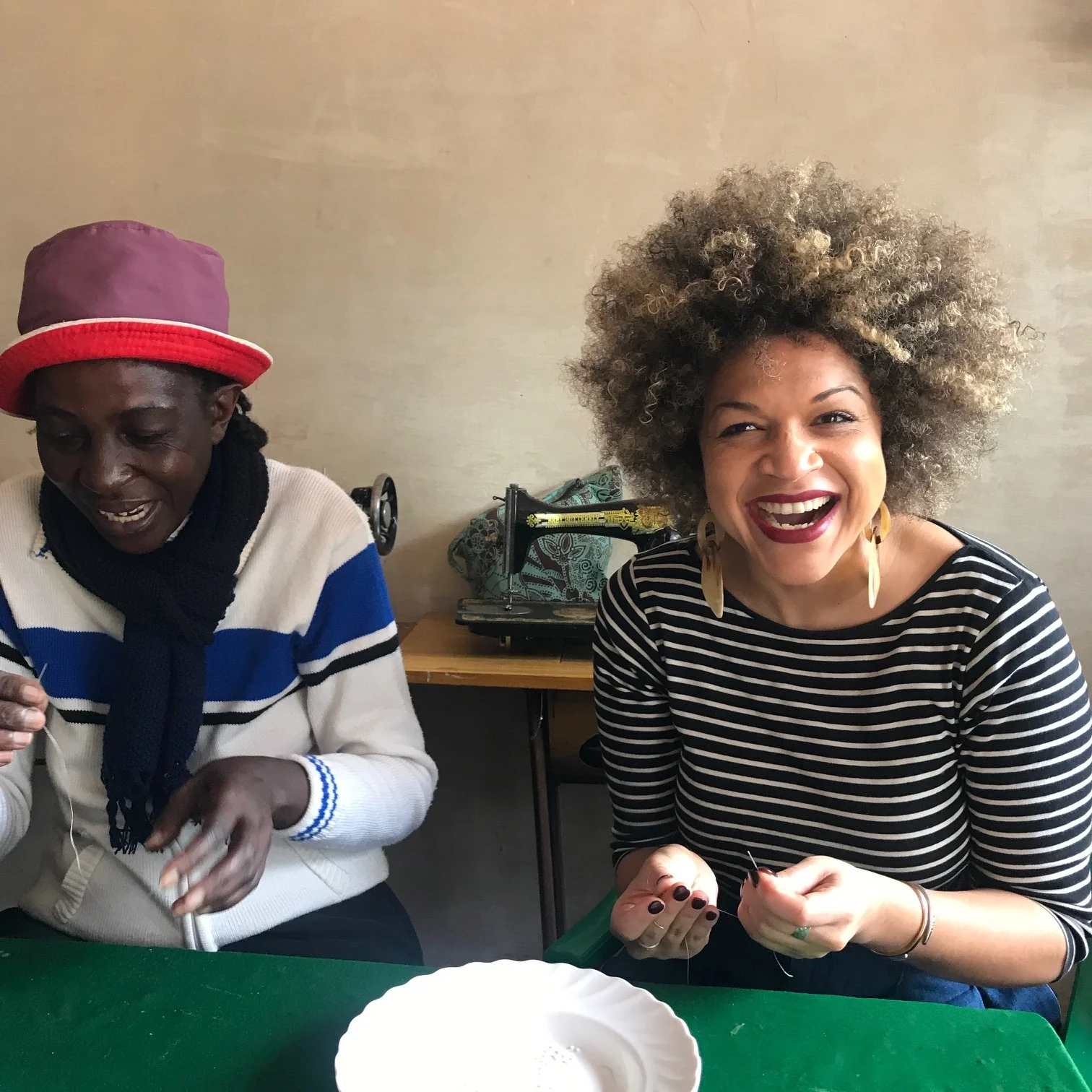THIS EPISODE IS BROUGHT TO YOU BY MIMCO, THE AUSTRALIAN ACCESSORIES BRAND THAT HAS WORKED WITH THE ETHICAL FASHION INITIATIVE SINCE 2014.
EPISODE 51 FEATURES ARTISANS WHO WORK FOR ARTISAN FASHION IN NAIROBI
This is the second installment of a 2-part series about the UN’s Ethical Fashion Initiative, a flagship programme of the International Trade Centre. The EFI connects skilled artisans in places like Kenya, Mali, Burkina Faso, Haiti and Afghanistan, to the international value chain of fashion, working with the likes of Stella McCartney, Vivienne Westwood, Adidas and the Australian accessories house MIMCO.
In this Episode - recorded on the ground in Nairobi, Kenya - we get to hear from the artisans themselves, and discover why Artisan Fashion now runs the organisation here as a social enterprise. And we learn how fair work can empower women - from the women themselves.
How does all this happen? What does a fair work accessories factory look like, and how do the workers see value in the setup? How about in community hubs, where skilled artisans can work as collectives?
Clare interviewing Joan, a quality controller at the Athi River factory. Photographed by Chris Wanga
Joan working on a Stella McCartney bag at Athi River. Photograph Clare Press
Beading in Korogocho. Photograph by Chris Wanga
NOTES ON THE CONVERSATION WITH ROBIN
Robin MacAndrew is MD of Artisan Fashion. In December 2015, the ITC formalised the handover of its EFI operations in Kenya to private company Artisan Fashion. They say: "Our work practices and operations are guided by the Fair Labour Association (FLA) Code of Conduct. Through collaboration with the International Trade Centre Ethical Fashion Initiative and the R.I.S.E. framework monitoring, we ensure our business is socially and environmentally responsible."
R.I.S.E. reports. RISE is a tool developed by the UN's Ethical Fashion Initiative to monitor and track the impact of producing fashion items. The aim is to ensure that production activities take place within an ethical and fully traceable supply chain. RISE aims to highlight the various skills involved, the attention to detail and the handmade quality of the product. The information gathered is made public, thus responding to the growing consumer demand for supply chain transparency.
Business with purpose. One of our favourite subjects. Make sure you listen to the podcast with Lily Cole for more inspiration on this.
"CoNsumers feel a greater sense of global citizenship...i think businesses that are unable to explain what it is that they do beyond lookng afer the bottom line will cease to be relevant. i think you're going to have to be able to show, as any business globally, that you offer something positive to society." - robin macandrew
Start with Why is a book by author and speaker Simon Sinek. He says, "“If your actions inspire others to dream more, learn more, do more and become more, you are a leader.”
Korogocho slum is home to 150,000 to 200,000 people pressed into 1.5 square kilometres, northeast of Nairobi city centre. There is little formal infrastructure serving Korogocho's residents. Most housing was built by families living there, and is made of found or recycled materials. Despite this, many of the residents pay land rent for the right to live there. Others pay rent. There is no central sewer system or piped fresh water. There is no system of street lighting, resulting in increased insecurity and the construction of special lighted safe areas by government and NGOs. With poor infrastructure, few resources, overcrowding, and proximity to the dump, health in Korogocho is poor. All this is from Wikipedia, but we don't doubt it's true. And yet. And yet. This place is also a place of beauty and hope. This place is a place where women get together and make change. Where they support one another and work collectively to sustain their families and communities.
Clare leaving the EFI hub in Korogocho with master beader Ibrahim. Photograph by Chris Wanga
Maasai beading tradition. The Maasai community is comprised of 16 sections (known in Maa as Iloshon). Maasai art is dominated by beadwork, a tradition that dates back hundreds of years. The beadwork is different from section to section. Initially, Maasai women used dried grass, sticks, clay, seeds, and shells as materials. Today they use plastic and glass beads. Since beading is skilled and time-consuming, as Robin notes, it can be socially impactful work. It's also beautiful. And damn hard to learn...
MIMCO's head of design Anne Marie Bodal learning to bead... slowly.
To shop MIMCO's Artisan Fashion collection, head here.
A note on our MUSIC: it is by our friend Montaigne, who sang a special acoustic version of "Because I love You" just for us. It's from her album Glorious Heights.
THANK YOU FOR JOINING THE WARDROBE CRISIS CONVERSATION. WE'LL HAVE A NEW EPISODE FOR YOU EVERY WEDNESDAY. CAN YOU HELP US SPREAD THE WORD? WE'D LOVE YOU TO TELL YOUR FRIENDS & LEAVE A REVIEW IN iTUNES.
Until next time,
Clare x









